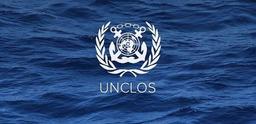
International Law - Law of Sea
Quiz by Nguyễn Ngọc Kim Ngân
Feel free to use or edit a copy
includes Teacher and Student dashboards
Measure skillsfrom any curriculum
Tag the questions with any skills you have. Your dashboard will track each student's mastery of each skill.
- edit the questions
- save a copy for later
- start a class game
- automatically assign follow-up activities based on students’ scores
- assign as homework
- share a link with colleagues
- print as a bubble sheet
- Q1
The coastal state has exclusive rights to explore and exploit the natural resources of the continental shelf. Which of the following is NOT considered a natural resource of the continental shelf?
Natural gas
Mineral deposits
Fish
Petroleum
30s - Q2
What is the concept of the “innocent passage” primarily concerned with?
The right of a coastal State to regulate navigation in its territorial sea
The right of warships to conduct military exercises in the territorial sea
The right of foreign ships to pass through the territorial sea of a coastal State
The right of submarines to navigate submerged in the territorial sea
30s - Q3
Straight baselines shall not be drawn to and from low-tide elevations in any circumstance
falsetrueTrue or False30s - Q4
Which is the zone that was created by the UNCLOS?
The internal waters
Territorial sea
The Exclusive Economic Zone (EEZ)
The Archipelagic Waters
30s - Q5
The exclusive economic zone is the water area above the continental shelf.
falsetrueTrue or False30s - Q6
Which zone is an Exclusive Economic Zone?
24 Nautical Mile
12 Nautical Miles
200 Nautical Miles
30s - Q7
What does the term “archipelagic system” in the Law of the Sea refer to?
A chain of islands forming a distinct maritime zone
Islands have no territorial sea rights
An island and the surrounding waters constituting a common territory
All islands belong to the coastal state
30s - Q8
Choose the correct an
30s - Q9
Choose the correct answer
30s - Q10
Coastal State B wants to extend its continental shelf up to 350 nautical miles from the baseline. State C objects. Does State B have the right to exploit the extended continental shelf?
Yes, but with the consent of neighboring states
No, because the continental shelf only extends up to 200 nautical miles
Yes, State B has the right to extend its continental shelf up to 350 nautical miles without any agreement
30s - Q11
Under what circumstances is a coastal state entitled to exercise criminal jurisdiction over private and public ships in its territorial water?
When the ship is conducting research activities
When the ship is merely passing through territorial waters
When the ship is engaged in fishing activities
When the ship is moving from internal waters to territorial waters
30s - Q12
The concept of "innocent passage" applies to which of the following zones?
High Seas
Continental Shelf
Territorial Sea
Exclusive Economic Zone
30s - Q13
Which of the following is NOT a principle of the law of the sea?
Freedom of pollution
Freedom of fishing
Freedom of navigation
Freedom of overflight
30s - Q14
When coastal States do enforce their criminal jurisdiction over foreign vessels in their ports?
Port States enforce their jurisdiction in all cases of delinquent vessels
Port States are not entitled to enforce their jurisdiction over any foreign vessel
Port States generally enforce their criminal jurisdiction over crimes that infringe their customs laws or disrupt peace and public order
Port States enforce their jurisdiction only in respect of very serious crimes, such as drug trafficking
30s - Q15
Which of the following best describes the Exclusive Economic Zone (EEZ)?
The area of the sea adjacent to the coastal state's land territory, subject to the territorial sovereignty of that state
The area of the sea where the coastal state has the right to exercise the freedoms of navigation and overflight, as well as other internationally lawful uses of the sea related to these freedoms.
The submerged prolongation of the land mass of the coastal state, and comprises the seabed and subsoil of the submarine areas that extend beyond its territorial sea throughout the natural prolongation of its land territory to the outer edge of the continental margin
The area beyond and adjacent to the territorial sea, subject to the specific legal regime established in Part V of the United Nations Convention on the Law of the Sea
30s